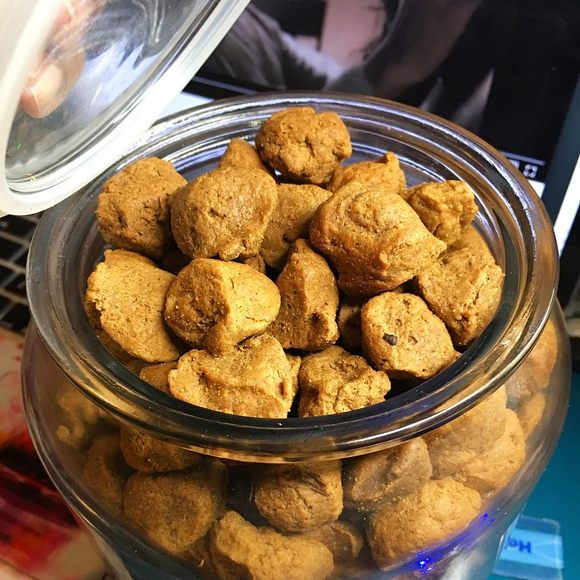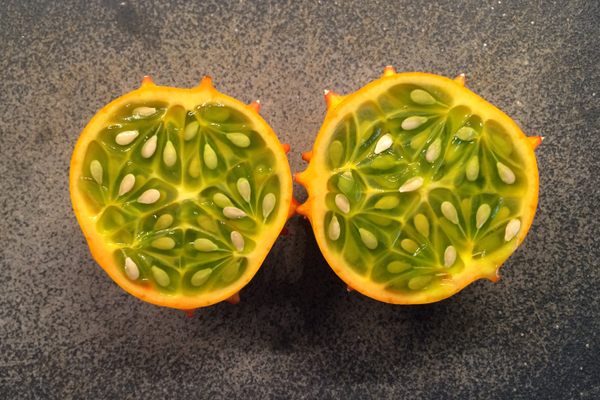Kuli-kuli is a popular Nigerian snack made from crushed peanuts. Often colloquially referred to as groundnuts, peanuts are a staple crop in several West African countries. High in protein and fat, groundnut-based foods such as kuli-kuli provide an inexpensive option for a quick and satiating bite.
Kuli-kuli originated in Northern Nigeria, but is now widely enjoyed throughout the country and across Benin, Northern Cameroon, and Ghana. Often referred to as groundnut cakes or groundnut chips, the snacks come in a dazzling array of shapes and sizes, from small, rolled globes to spiraled cones.
The process of making kuli-kuli can be labor-intensive, especially for those not using heavy-duty machinery. After the peanuts have been dry-roasted, they must be stone-ground, milled, or blended into a paste and mixed with ginger, chicken bouillon, hot pepper, and other spices. To give the snack its iconic crunch, kuli-kuli makers carefully press the paste to remove any excess oil. Once dry, the mixture can be shaped and deep-fried.
Diners eat kuli-kuli plain, topped with a bit of sugar, or crushed and mixed into other dishes such as soaked garri (a powdery mixture often based on grain or maize) or soup. It can also be used as a flavorful topping for salads or yogurt, and some kuli-kuli fans even add it into smoothies for a protein (and flavor) kick. As far as deep-fried foods go, it’s one of the most versatile in both form and function. But no matter the shape, its flavor and crunch is consistently beloved among those who try it.
Written By
 Abbey Perreault
Abbey Perreault
Sources
- www.bismikitchen.com/kuli-kulicrunchy-peanut-snack.html
- www.vanguardngr.com/2016/02/5-snacks-you-can-only-find-in-nigeria/
- www.dailytrust.com.ng/news/women-enterpreneurs/-kuli-kuli-trans-tribal-delicacy-facing-extinction/202735.html
- www.fiiro.org/index.php/products/147-kulikuli
- scitechafrica.com/2017/07/20/how-kuli-kuli-should-be-packaged-and-branded/
- gourmetguide234.com/2016/02/27/kuli-kuli/
- services.fiiro.gov.ng/shop/kulikuli-production/














